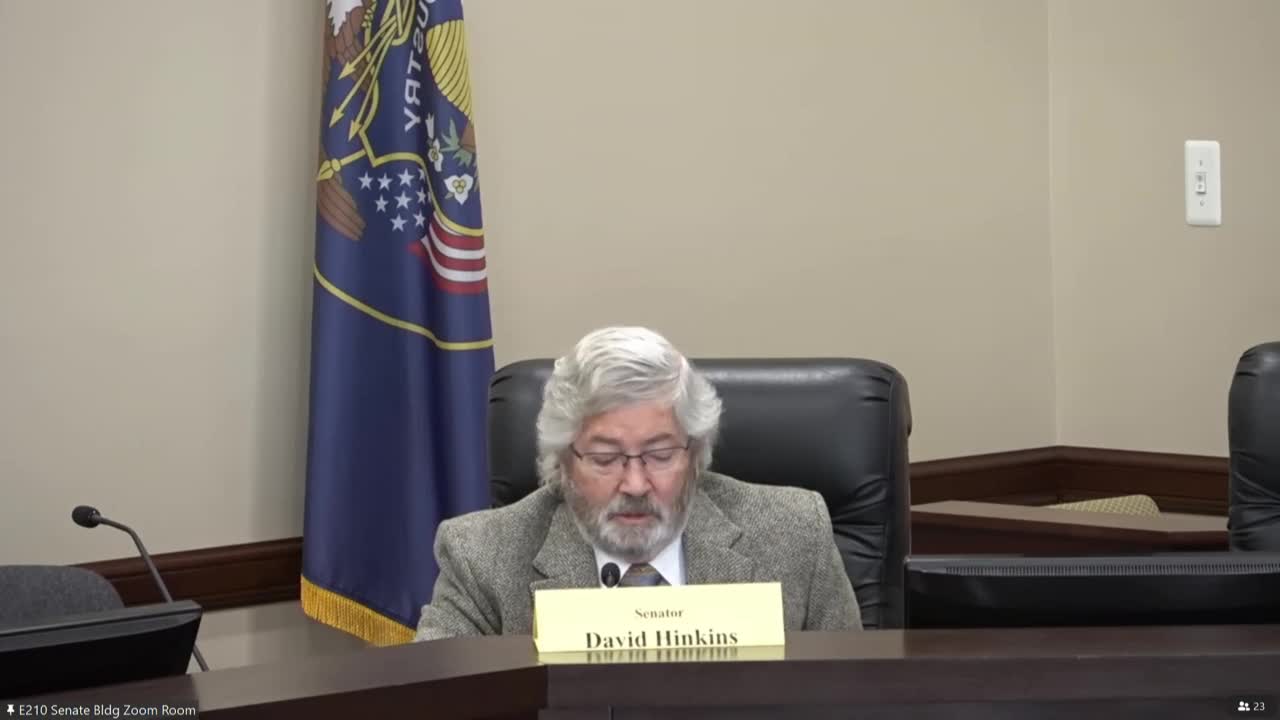Committee deadlocks on school mental‑health/telehealth bill after contentious debate over parental consent and clinician scope
Get AI-powered insights, summaries, and transcripts
Subscribe
Summary
Third substitute House Bill 281, which would change parental‑consent rules and processes for school‑based telehealth and mental‑health services, failed to pass the Education Committee after lengthy testimony and competing concerns about parental rights, clinician practice standards, safety carveouts and national accreditation.
The Senate Education Committee considered third substitute House Bill 281, a package of changes to school health and mental‑health practice in schools, but the committee did not advance the bill after extended debate.
Sponsor Representative Grisham (presenter) described the bill as aligning school mental‑health practice with private‑sector expectations by increasing parental involvement: it would require written parental consent for mental‑health services provided through schools, direct clinicians to discuss topics to be addressed with parents (and to honor topics parents ask to exclude), and allow telehealth in some cases. The sponsor said the intent was to move parents from an opt‑in posture to an opt‑out posture and to give parents more information and opportunity to collaborate.
Proponents and opponents disagreed over clinical practice and safety. The sponsor and several mental‑health advocates said the bill includes carveouts for immediate safety needs and mandatory reporting. In the committee’s accepted compromise language, authorized school personnel may address topics without explicit parental pre‑approval if omitting those topics would compromise the student’s immediate safety, would violate mandatory reporting obligations, or would require a safety assessment based on observed behavior or statements.
Why it mattered: supporters said parental collaboration improves outcomes; opponents—many school mental‑health clinicians and professional associations—warned the bill could conflict with national practice standards and impede clinicians’ ability to assess safety and deliver evidence‑based care, especially where students seek confidential help. Testimony included licensed clinical psychologists, school social workers and representatives of professional associations; some urged preserving existing informed‑consent norms and clinician discretion within mandatory‑reporting law.
Key questions: committee members asked whether clinicians could ask students directly about suicide. Sponsor and witnesses said clinicians may not directly ask about suicide unless behaviors or statements indicate imminent safety concerns and the emergency carveout applies; all witnesses acknowledged mandatory reporting remains in force for suspected abuse.
Public testimony: a mix of clinicians and advocacy groups testified both for and against the bill. Several clinician witnesses urged caution, saying the proposed restrictions on topics and parental direction of session content would limit clinical assessment and conflict with evidence‑based practice. Supporters of the bill said the changes strengthen parental rights and align schools with private‑sector practice.
Committee action: Senator Baldry moved to send third substitute HB281 to the full Senate with a favorable recommendation. The motion failed: the chair announced the motion did not carry, with Senators Reby and Hinkins recorded as opposed in committee comments.
The bill therefore did not advance out of committee at this time; sponsors and stakeholders indicated further work was needed to resolve clinician practice concerns and safety‑assessment procedures.
